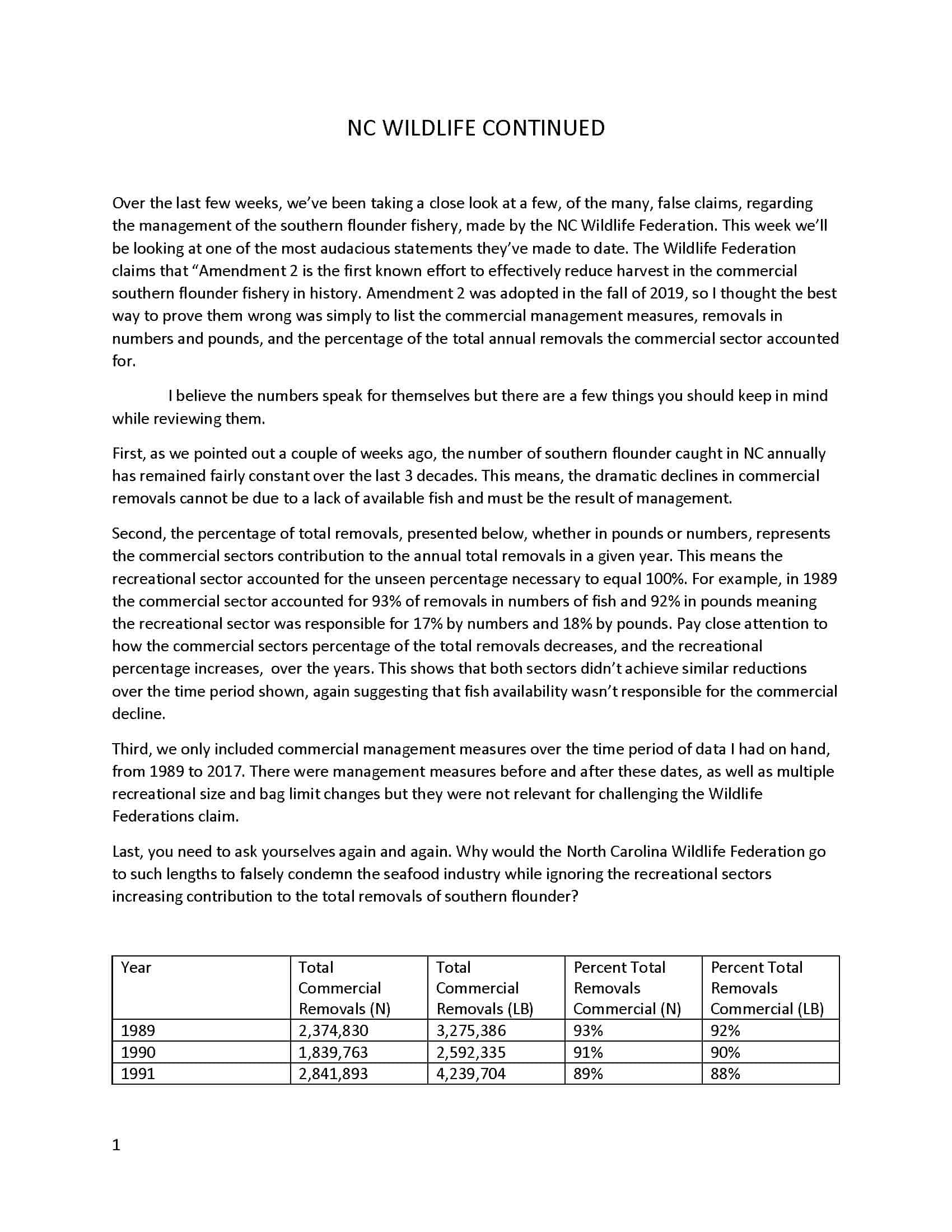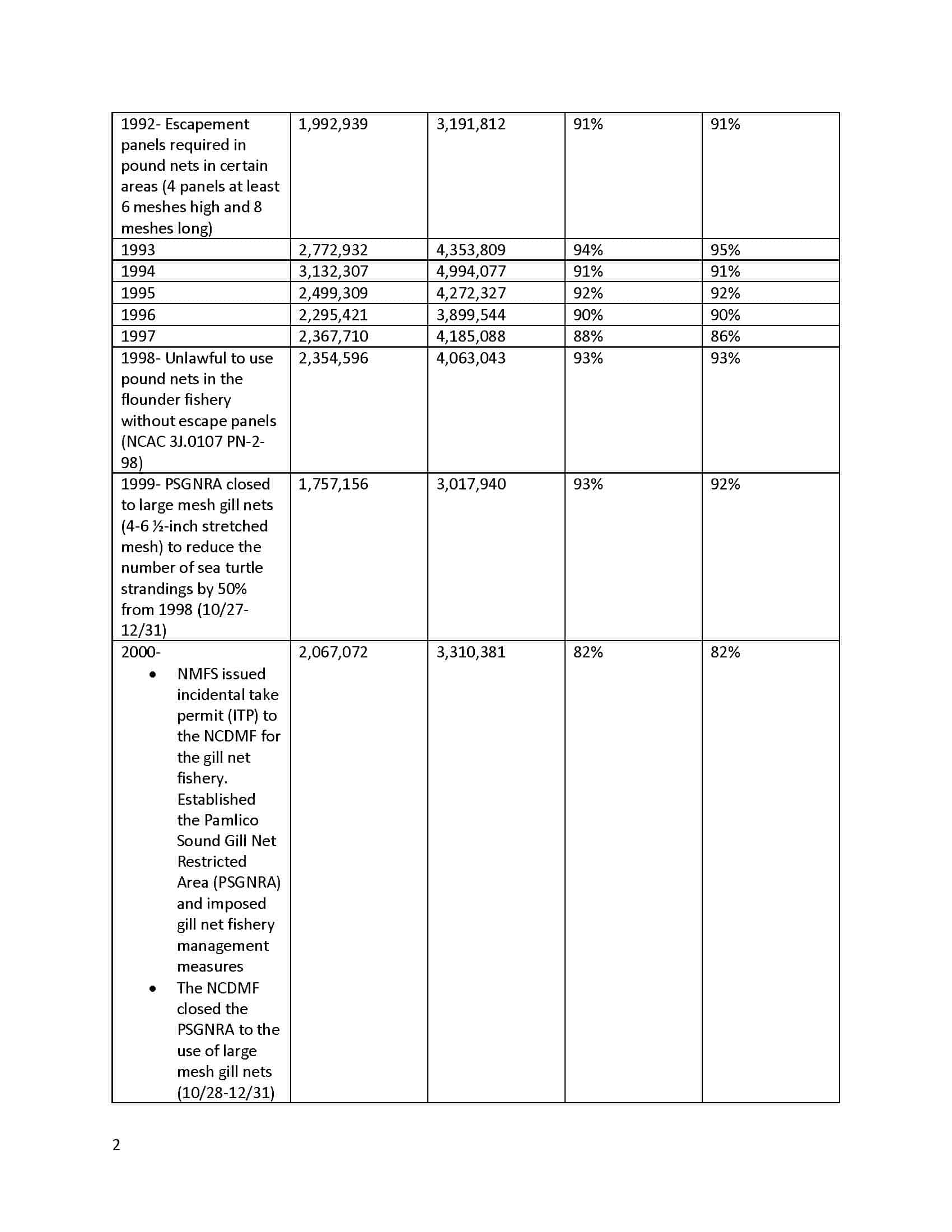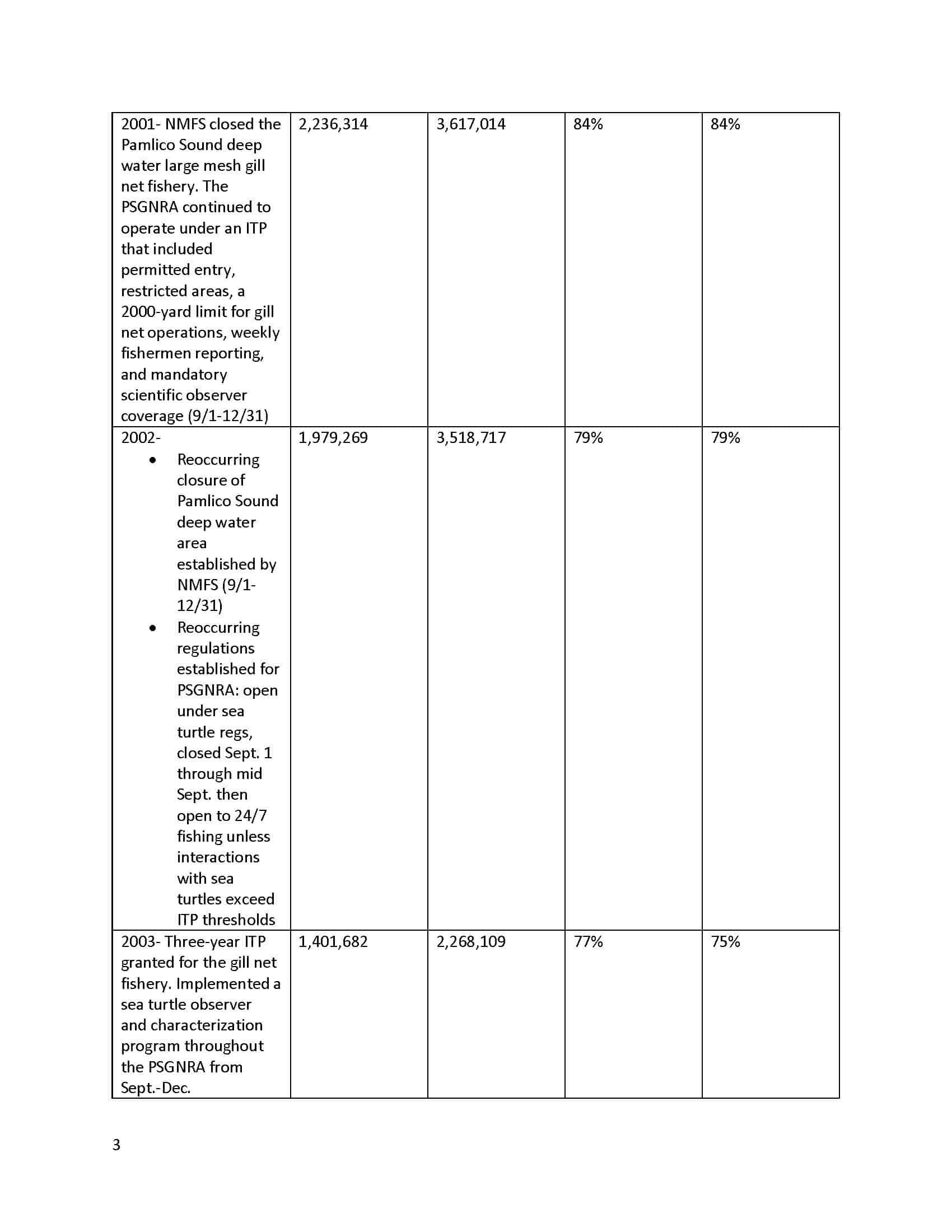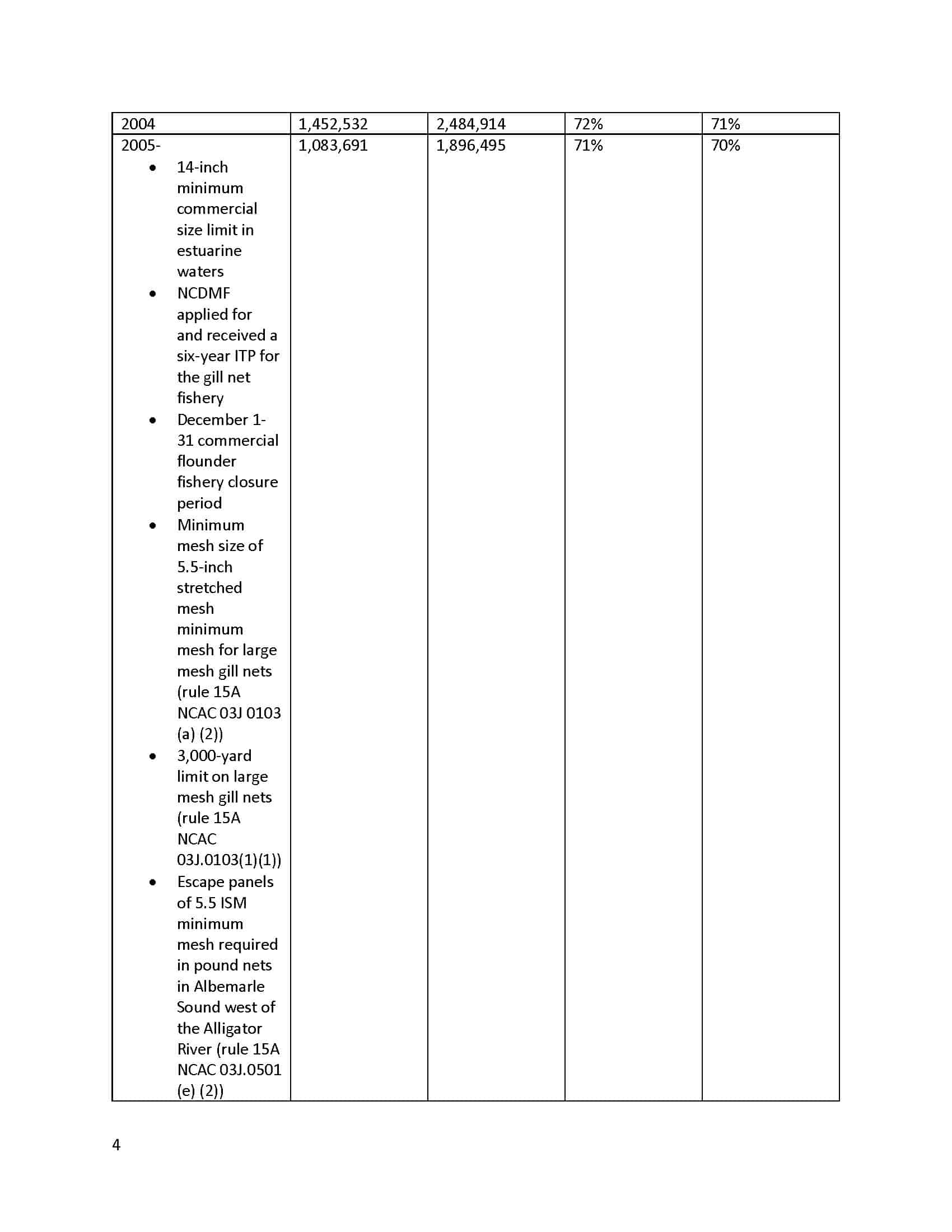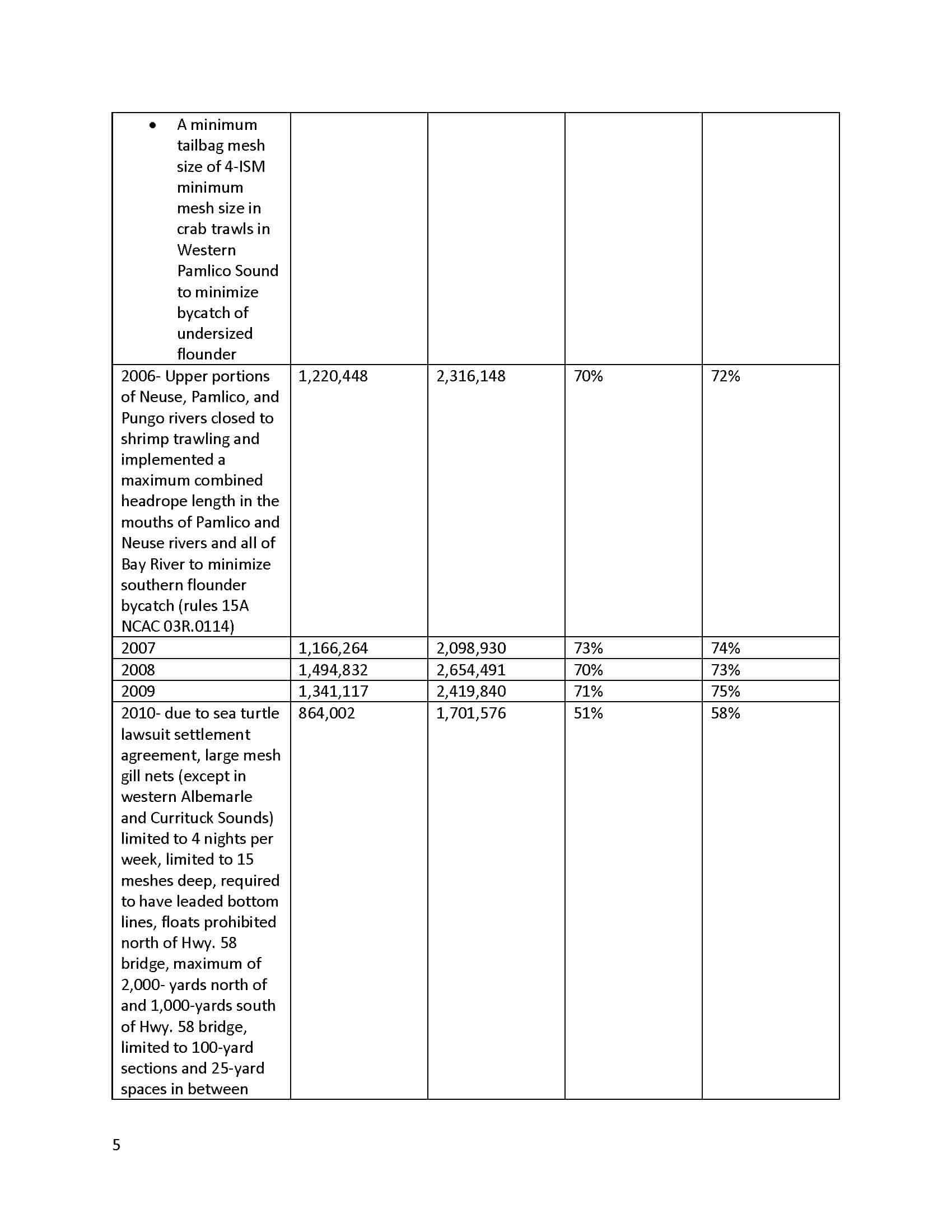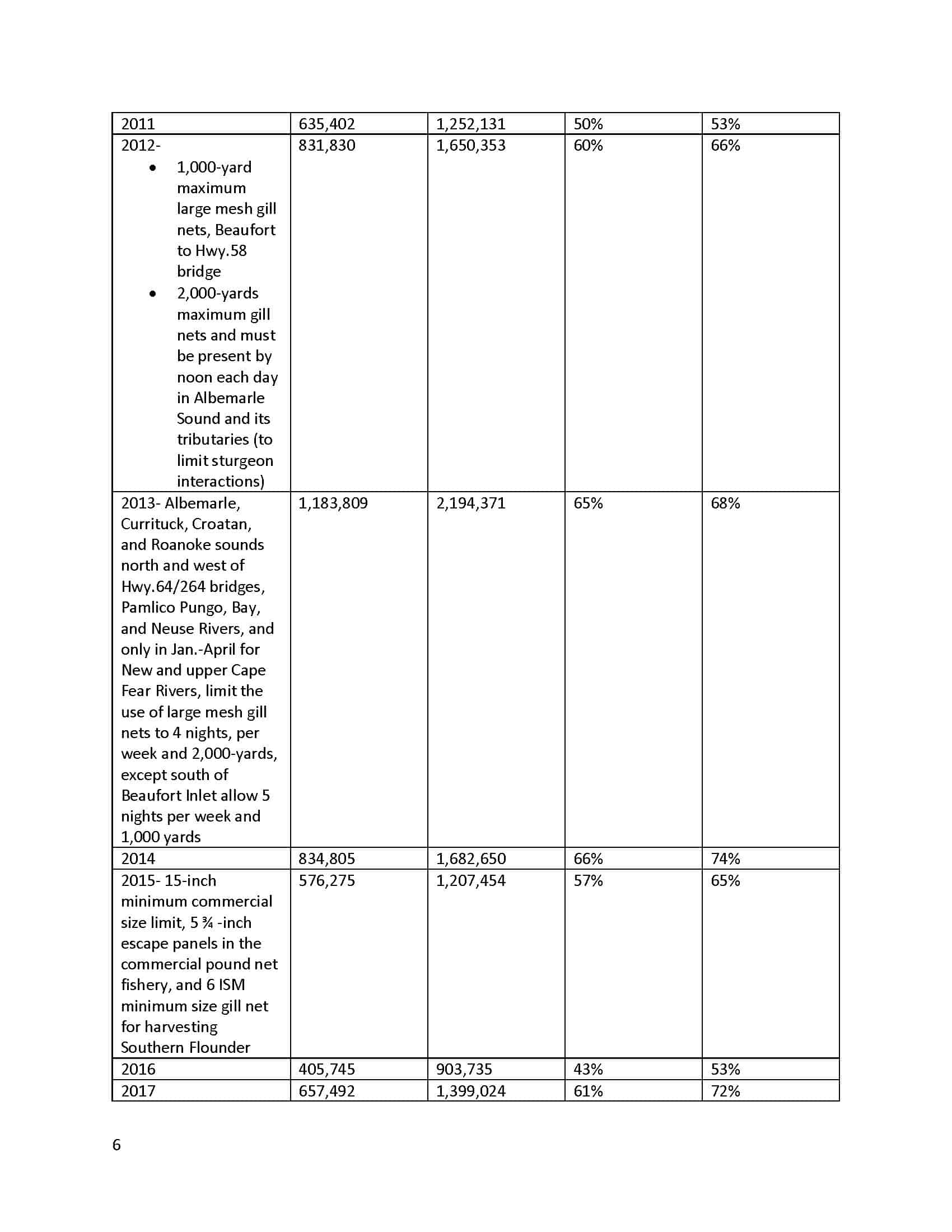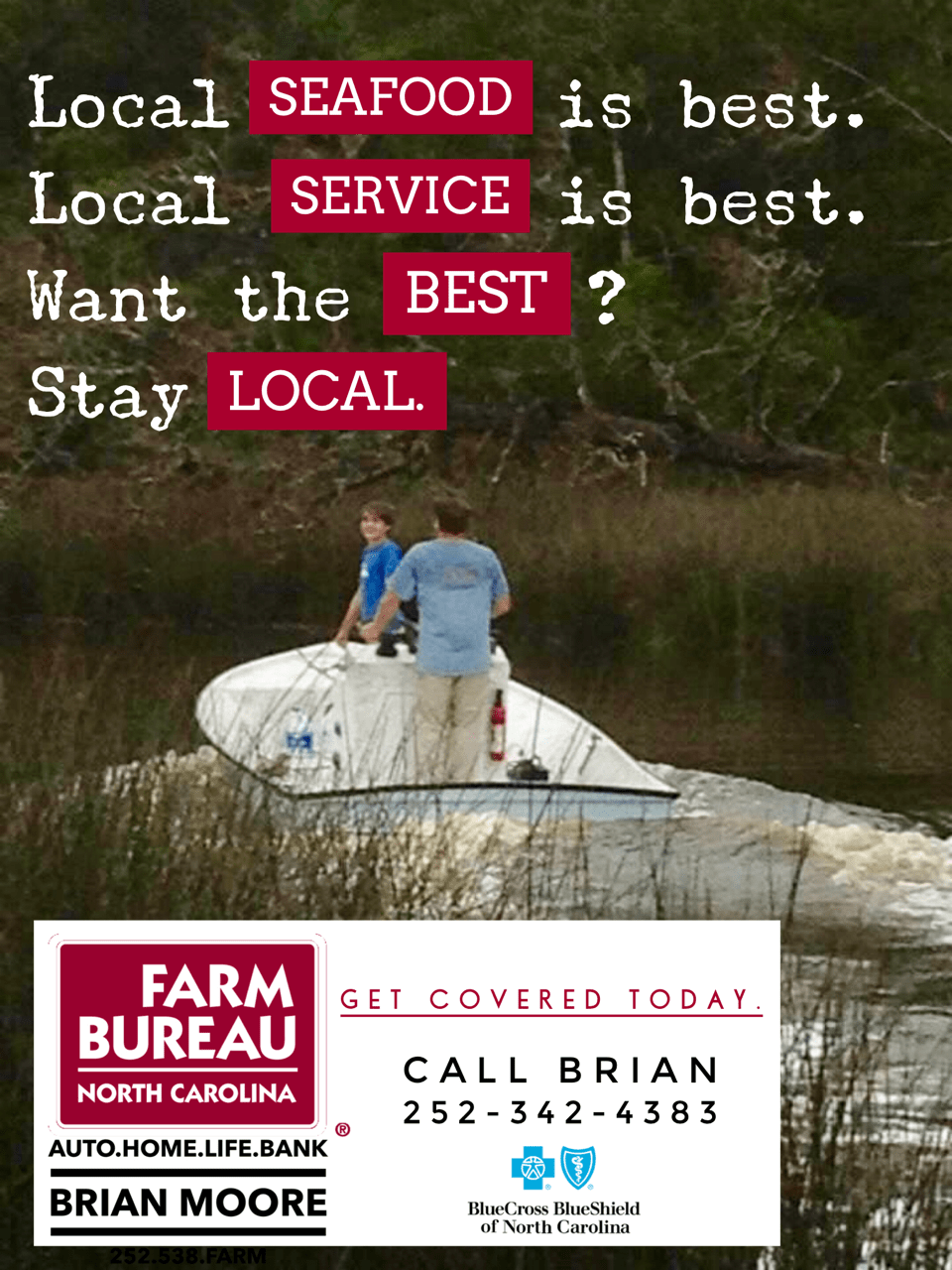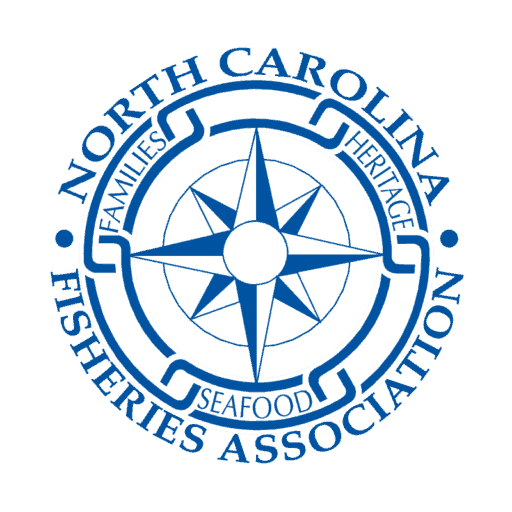The South Atlantic Bite
Newsworthy Notes – January 27, 2022
Correction: The days of the week for the scoping webinars for Gag, Snowy Grouper, Golden Tilefish & Blueline Tilefish were incorrectly identified earlier.
|
|
Reminder! Scoping Webinars Next Week: Gag, Snowy Grouper, Golden Tilefish & Blueline Tilefish
Register now; webinars scheduled for February 1-3, 2022 beginning at 6 p.m.
The Council will hold public scoping webinars on Tuesday, Wednesday and Thursday of next week, starting at 6 p.m., to gather public comment on regulation changes proposed for four species in the snapper grouper management complex. Can’t attend a webinar? Presentations and an online comment form are now available from the Council’s website. See below for details.
Background
The most recent stock assessment for Gag grouper indicates that a 50% decrease in harvest is required to end overfishing and rebuild the stock. The Council is gathering public input on commercial trip limit reductions, establishing recreational vessel limits, restricting spearfishing gear, and increasing minimum size limits. Changes to management would be implemented through Amendment 53 to the Snapper Grouper Fishery Management Plan.
Reductions in the harvest of Snowy Grouper, a deepwater species targeted by both commercial and recreational fishermen, are being considered through Amendment 51. The measures respond to the latest stock assessment showing the stock is overfished and undergoing overfishing.
Changes to management for two other deepwater species are also being considered. There is good news for the Golden Tilefish fishery, with the recent stock assessment allowing for an increase in harvest. Changes to recreational accountability measures and recreational management measures for Blueline Tilefish are also being discussed. The tilefish management measures are being addressed in Amendment 52.
The Council is asking for public input on management options to consider as it moves forward with the amendments.
Webinar Registration for Scoping:
Written comments must be received by 5 PM on February 4, 2022. The Council will review public comment and address the amendments again during its March 7-11, 2022 meeting in Jekyll Island, GA.
Photo credit: Miss Judy Charters
|
|
Climate Change Scenario Planning: Upcoming Webinars to Focus on Oceanographic, Biological, and Social/Economic Drivers of Change
Over the past year, East Coast fishery management bodies have been collaborating on a climate change scenario planning initiative designed to prepare fishing communities and fishery managers for an era of climate change. The goals of this project are to assess how climate change might affect stock distribution and availability of East Coast marine fisheries over the next 20 years and to identify the implications for fishery management and governance.
Last summer and fall, many stakeholders participated in the Scoping phase of the project by attending introductory webinars and providing input through an online questionnaire. A summary of the scoping process and input received is available here.
The next step in the scenario planning process is the Exploration phase. Building on the input gathered during scoping, this phase will include a series of three webinars to focus on identifying and analyzing the major drivers of change in greater depth. Once again, stakeholder involvement is key, and the webinars are open to the public. The outcomes of these webinars will form the “building blocks” for a scenario creation workshop to be held in Spring 2022.
|
|
Exploration Phase Webinars February/March 2022
Each of the three webinars will address a different category of forces driving change in East Coast fisheries (see schedule below for details). Participants are encouraged to attend all three webinars, if possible, to take in the full range of issues being explored. The webinars will contain a keynote address, a panel discussion, and a limited opportunity for comments, questions, and discussion. Three background documents are being developed with specific information to support each webinar. Once completed, these documents will be posted here. Participants are encouraged to review these backgrounders before the webinars begin and come prepared to share comments on the primary drivers of change for East Coast fisheries. Click on the title below to register.
February 14, 2022, 3:00 p.m. – 4:30 p.m.
This webinar will look in detail at the trends in oceanography that are poised to shape East Coast fisheries over the next 20 years, such as changing ocean temperature, acidification, sea level rise, ocean currents and other developments. How predictable are these trends, and what impact might they have?
February 23, 2022, 3:00 p.m. – 4:30 p.m.
This webinar will explore expected and possible biological trends, including changes in the geographic range, distribution, and productivity of stocks, as well as changes in habitat, predator/prey relationships, and other ecosystem dynamics. What are the prospects for how these factors might develop and interact over the next 20 years>
March 2, 2022, 3:00 p.m. – 4:30 p.m.
This webinar will focus on social and economic trends that may affect fisheries, such as changing consumer demand and food production, other competing ocean uses (e.g., offshore energy and aquaculture), loss of working waterfronts, and other developments. How important will these developments be in shaping fisheries in the next 20 years?
|
|
Reducing the Number of Released Fish and Improving Survival
Share your ideas – online comment form available
When planning your offshore fishing trip, do you consider ways to avoid catching fish that must be released? Fishermen targeting species in the snapper grouper management complex, including Red Snapper, are keenly aware and frustrated with the number of fish that are being released due to regulations. Are there ways of fishing that can reduce these releases? For example, fishing seasons and area closures of “hot spots” have been suggested as options to explore. Are there gear changes that could be made to reduce interactions?
Council members are in the early stages of developing a Release Mortality Reduction Framework Amendment and want to hear your ideas. A background document and online comment form is now available from the Council’s website.
|
|
SAFMC Webinar Series:
Working Waterfront Infrastructure
February 8, 2022
1 p.m. – 2:30 p.m.
The Council’s informational webinar series continues on Tuesday, February 8th with a presentation from Georgia Southern University on working waterfronts in Georgia. The presentation will describe available fishing infrastructure in Georgia and the industry members utilizing it.
Information for the project was collected through a census of historic and current industry infrastructure, case studies, spatial analysis, a survey of seafood industry participants, and in-depth interviews.
A Q&A session will follow the presentation and members of the public will have the opportunity to participate in discussions. The presentation is for informational purposes only and no management actions will be taken. Register now for the webinar and receive email reminders as the date approaches.
|
|
Additional Snippets:
NOAA Fisheries Seeks Comments for an Application to Test Experimental Retrieval Devices for Black Sea Bass Pots in South Atlantic Federal Waters
NOAA Fisheries is accepting comments on an application for an exempted fishing permit (EFP) from Sustainable Seas Technology, Inc. The applicant proposes to deploy modified black sea bass pots with Acoustic Subsea Buoy Retrieval Systems in federal waters off North Carolina, South Carolina, Georgia, and northeastern Florida.
The project would examine the potential usefulness of the devices for use in the black sea bass pot component for the commercial sector of the snapper grouper fishery while minimizing impacts to marine mammals and sea turtles. See the Fishery Bulletin from NOAA Fisheries for background information and how to comment.
New Paper (and Video) Highlights Collaborative Research on Ocean Warming and Shark Distribution
Given climate change threats to ecosystems, it is critical to understand the responses of species to warming. This is especially important in the case of apex predators. A new research paper, published in Global Change Biology highlights a collaborative research study showing tiger shark distributions have expanded northward along the Atlantic coast, paralleling rising temperatures. Satellite tracking reveals annual migrations have also been impacted. Check out the cool video summary of the study from the University of Miami Shark Research and Conservation Program. A feature story is also available from NOAA Fisheries. Mark Your Calendar
Keep track of meetings scheduled by the Council from the website and register for meeting webinars as information becomes available. Register early and receive email reminders as the meeting date(s) approach!
February 1, 2, and 3, 2022
Public Scoping Webinars:
Snowy Grouper, Golden Tilefish, Blueline Tilefish and Gag Grouper – 6 p.m.
February 7, 2022
SAFMC Allocations Decision Tool Meeting
1 p.m. – 5 p.m. (via webinar)
February 8, 2022
SAFMC Seminar Series Webinar: Working Waterfront Infrastructure
1:30 p.m. – 2:30 p.m.
February 9, 2022
Recreational Reporting Workgroup Meeting
1 p.m. – 5 p.m. (via webinar)
February 10, 2022
Law Enforcement Advisory Panel Meeting
Town and Country Inn
Charleston, SC
February 11, 2022
Scientific and Statistical Committee Meeting
8:30 a.m. – 12:30 p.m. (via webinar)
|
|
About the South Atlantic Fishery Management Council
|
|
The South Atlantic Fishery Management Council, one of eight regional councils, conserves and manages fish stocks from three to 200 miles offshore of North Carolina, South Carolina, Georgia and east Florida. For more information, visit:
|
|
|
|
|
|
|
